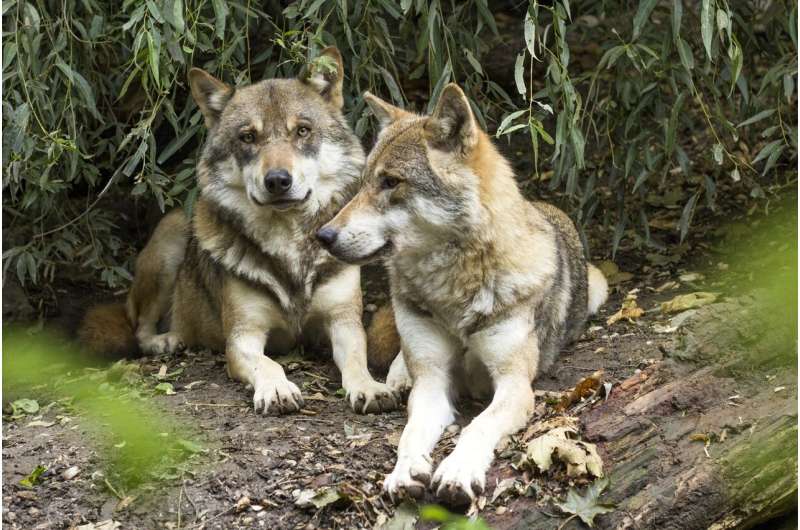This article has been reviewed according to Science X's editorial process and policies. Editors have highlighted the following attributes while ensuring the content's credibility:
fact-checked
reputable news agency
proofread
Another Western state says it won't send wolves to Colorado, citing 'enormous price' of managing the species

Another Western state has decided it will not provide wolves for Colorado's reintroduction efforts, citing federal regulation and disagreements about how wolves should be managed.
Idaho Department of Fish and Game Director Jim Fredericks declined Colorado Parks and Wildlife's request for wolves in a June 6 letter, which was first reported by Denver's KUSA-TV. Fredericks cited frustrations with federal restrictions on managing Idaho's wolves, "unacceptable impacts" of wolves on elk and deer populations and mistrust between conservation groups, ranchers and others because of disagreements of how to handle the species.
"Unfortunately, Idaho's experience leads us to conclude that negative impacts of wolves sent to Colorado will not stay in Colorado," Fredericks wrote.
Colorado voters in 2020 decided to reintroduce gray wolves and mandated that state wildlife officials do so by Dec. 31, 2023, but Colorado Parks and Wildlife officials have not yet secured an agreement with another state willing to donate the first animals.
Colorado has sent requests for wolves to Montana, Idaho, Washington and Oregon, Colorado Parks and Wildlife spokesman Joey Livingston said in an email. It did not request wolves from Wyoming, where the governor opposes Colorado's reintroduction efforts.
"CPW does not anticipate needing to request wolves from states outside of the Northern Rockies," Livingston said in an email. "CPW will work to exhaust all options for potential sources. We anticipate that we will find a solution in time to release wolves prior to the December 31, 2023 deadline. CPW does not anticipate the need to postpone reintroduction efforts."
The Wildlife Subcommittee of Washington's Fish and Wildlife Commission discussed Colorado's request for wolves during a June 22 meeting but did not make a decision or recommendation.
"It is our understanding that the Washington Department of Fish and Wildlife and the Washington Fish and Wildlife Commission are continuing to consider whether they may be able to provide wolves to Colorado at some point," Livingston said.
Colorado Wildlife officials plan on releasing 10 to 15 wolves on the Western Slope every year for the next three to five years.
The state of Idaho has paid "an enormous price" to have wolves in the state, Frederick wrote in his letter to Colorado officials.
The state has paid to monitor its wolves and to compensate owners of animals killed by wolves as well as the legal costs associated with litigation around the species, he wrote. Decisions on how to manage wolves have also led to conflict between "rural communities, hunters, trappers, outdoor recreation users, agricultural interests, wolf advocates, conservation organizations and governmental entities," he wrote.
"The result is a strain on many of the very relationships that are critical to future conservation efforts," Fredericks said.
Federal wildlife officials are considering the protection status of gray wolves in the Western U.S. While the species is listed as endangered in most of the country, it is under state management in the Northern Rockies: Montana, Idaho, Wyoming and portions of Washington, Oregon and Utah. That means the states can decide whether to allow hunting and trapping of wolves.
Fredericks said he would be more open to providing wolves to Colorado were the species solely under state management.
"Idaho is concerned with expanding the scope of our potential biological and social conflicts regarding wolves rather than reducing them," Fredericks wrote.
But wolves in Colorado will be federally protected under the Endangered Species Act. Colorado wildlife officials will ask federal authorities for a designation that will allow them more flexibility to manage wolves in the state.
2023 MediaNews Group, Inc.
Distributed by Tribune Content Agency, LLC.


















